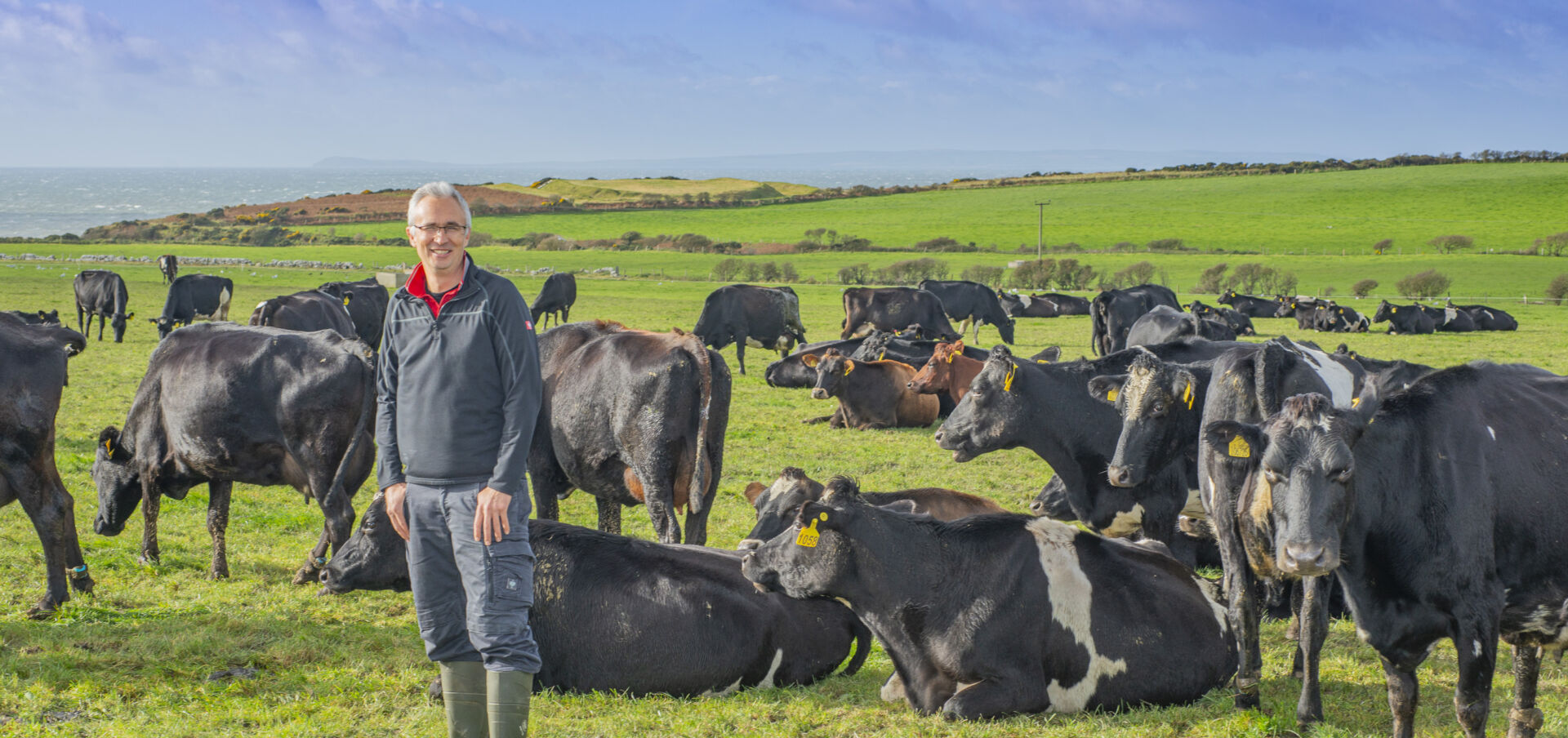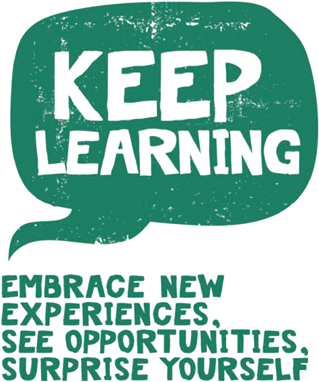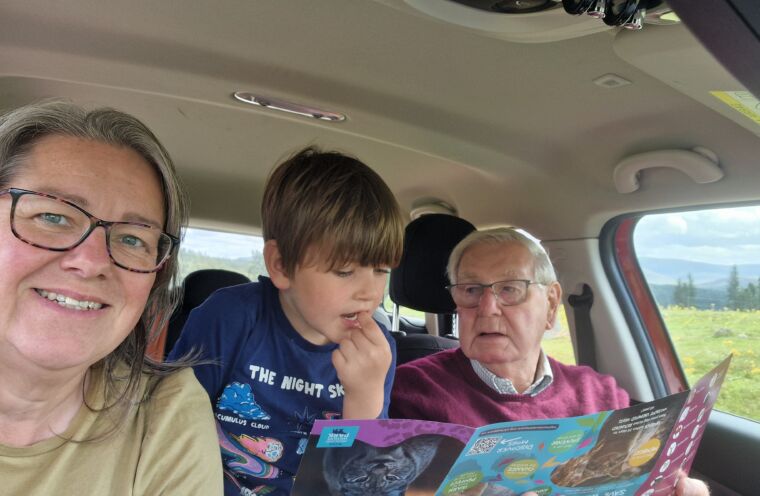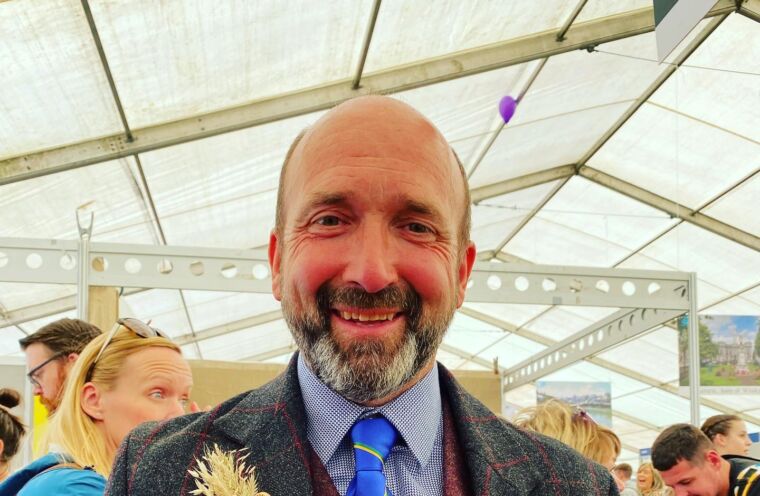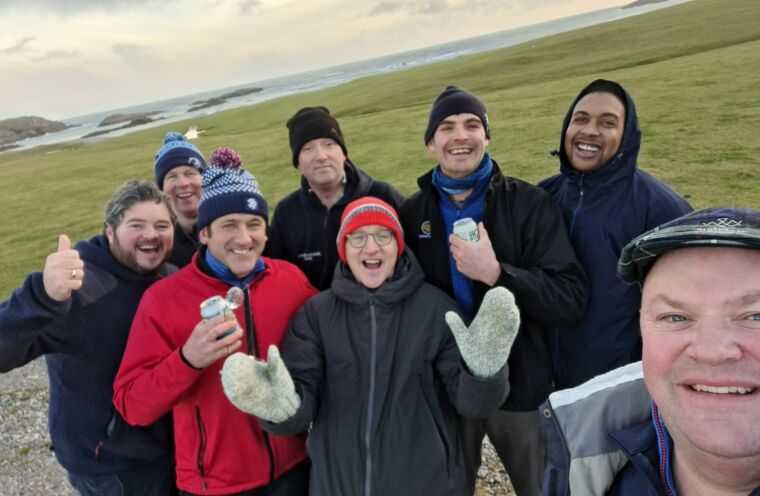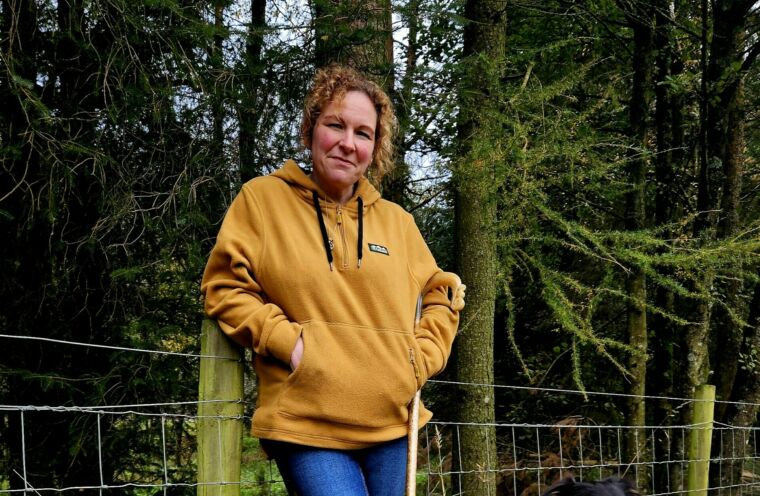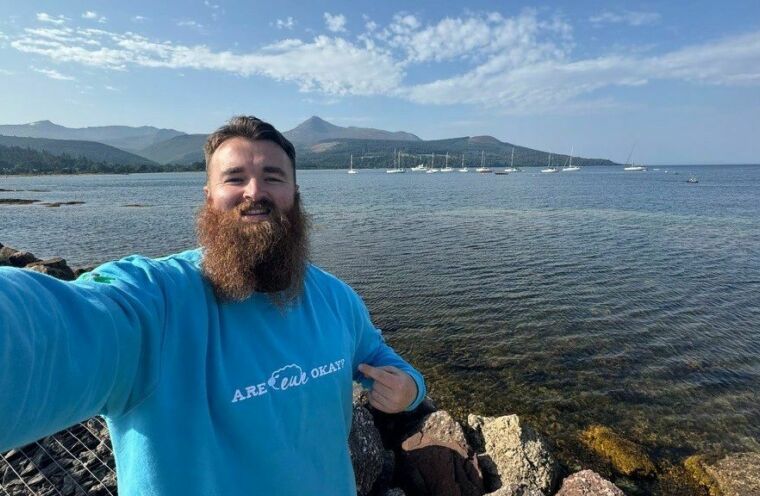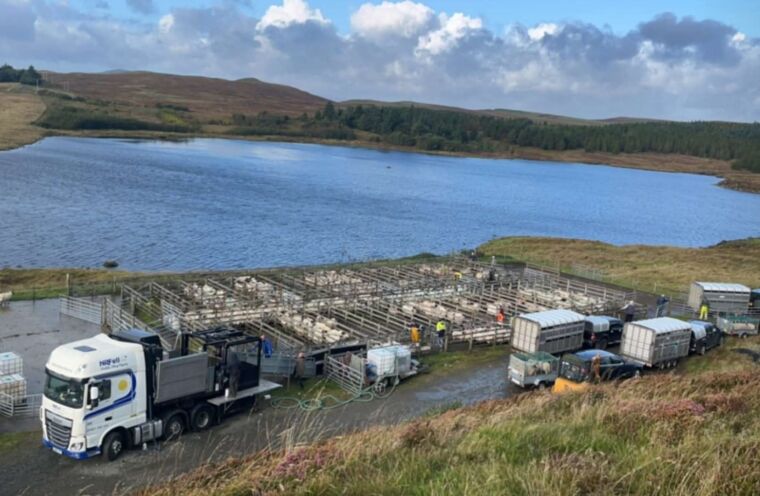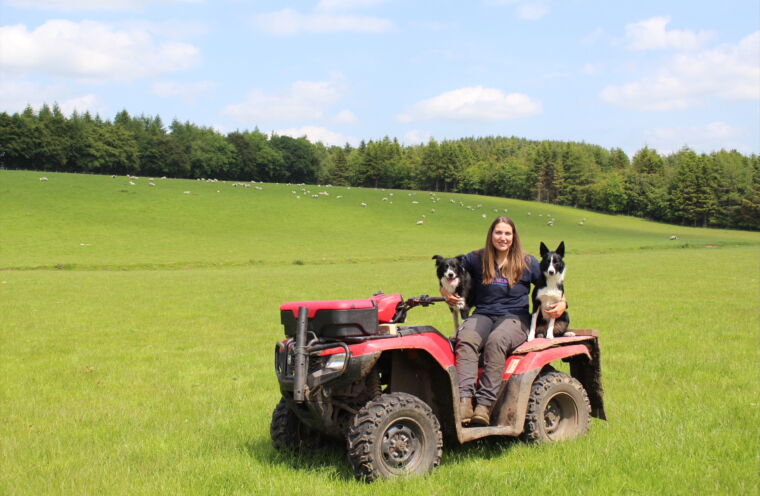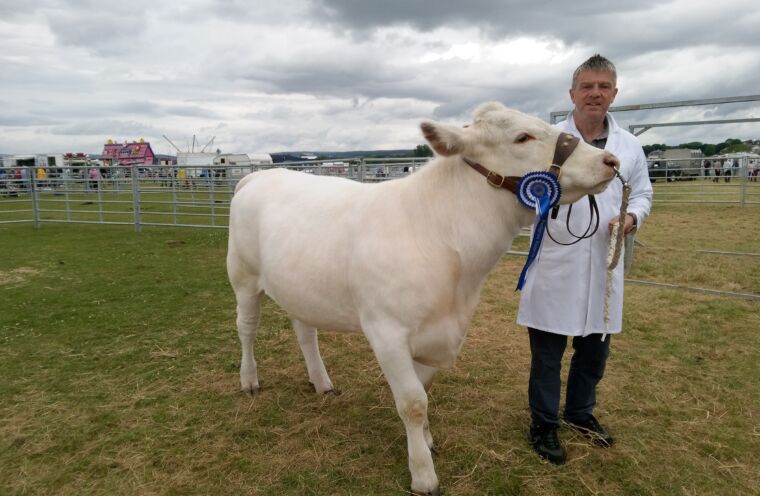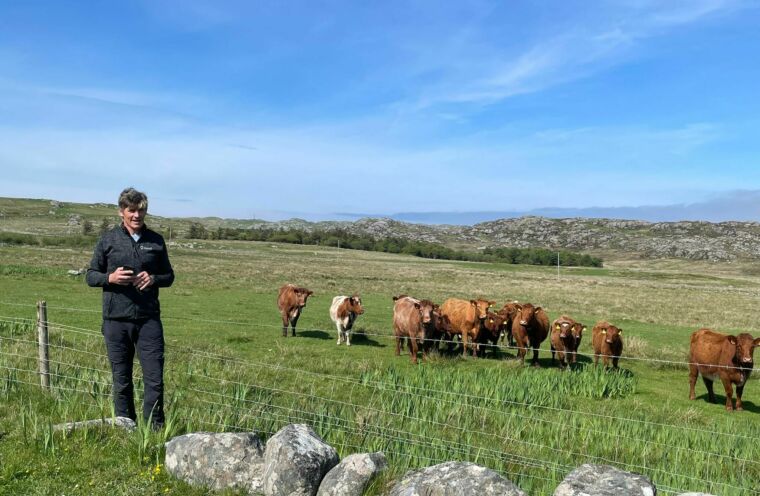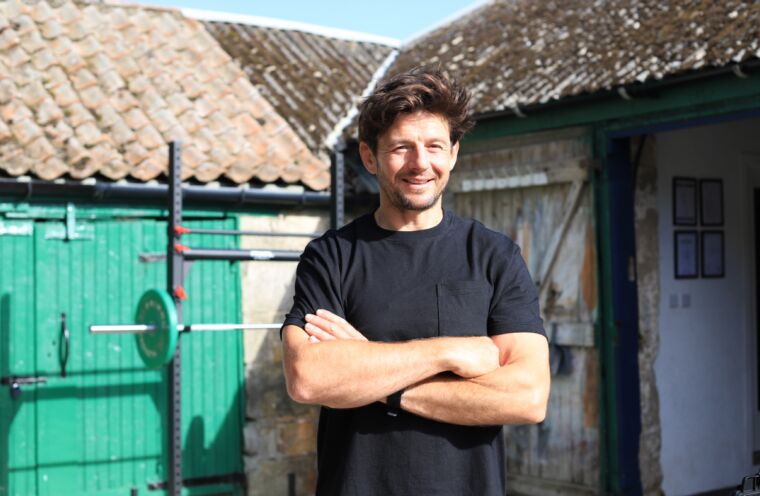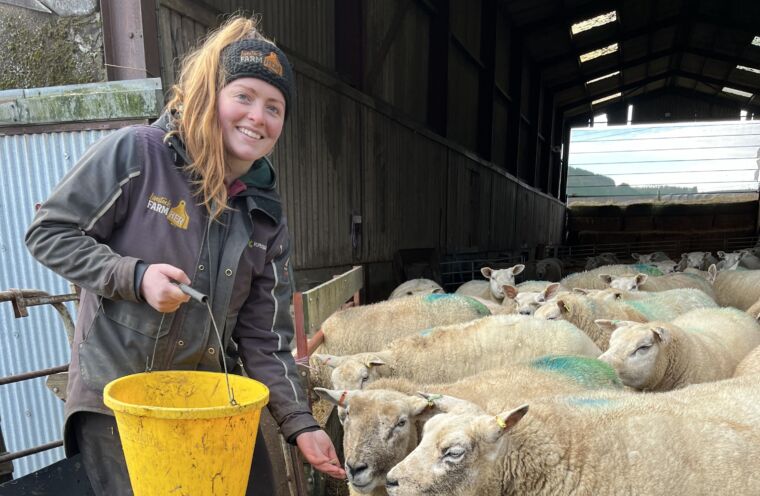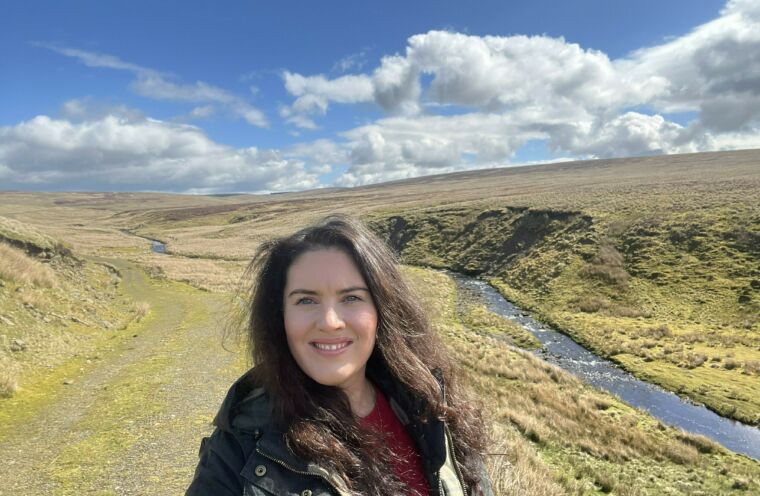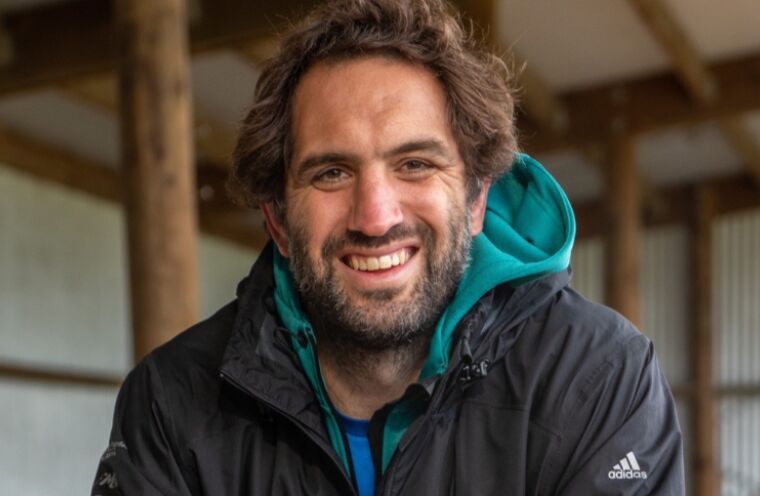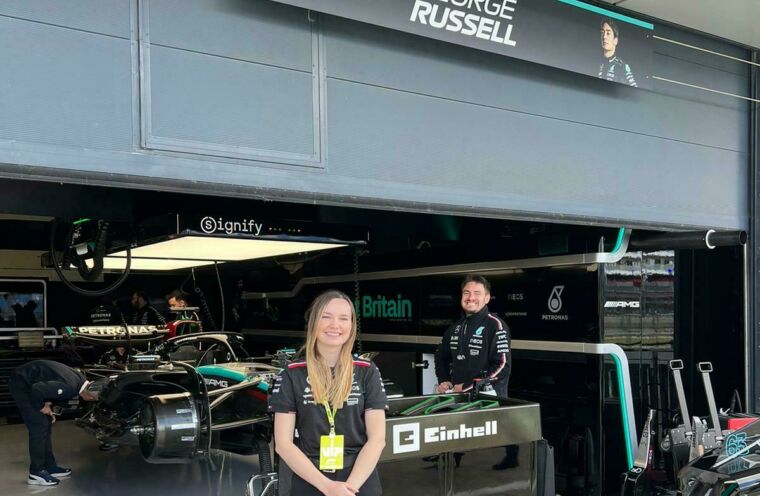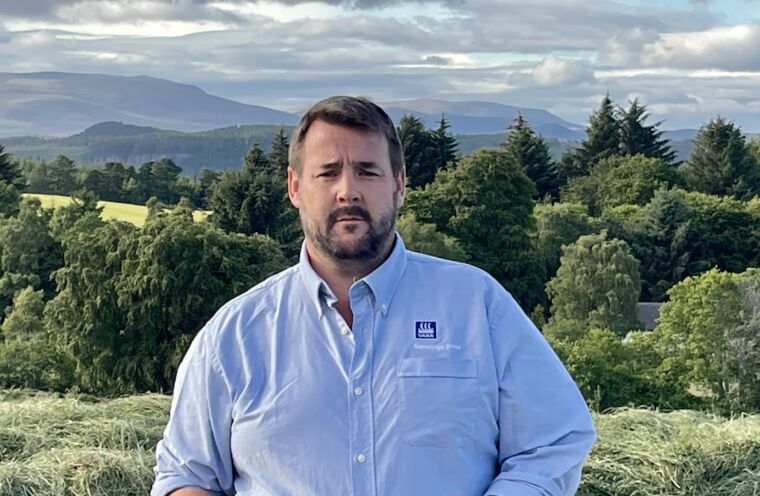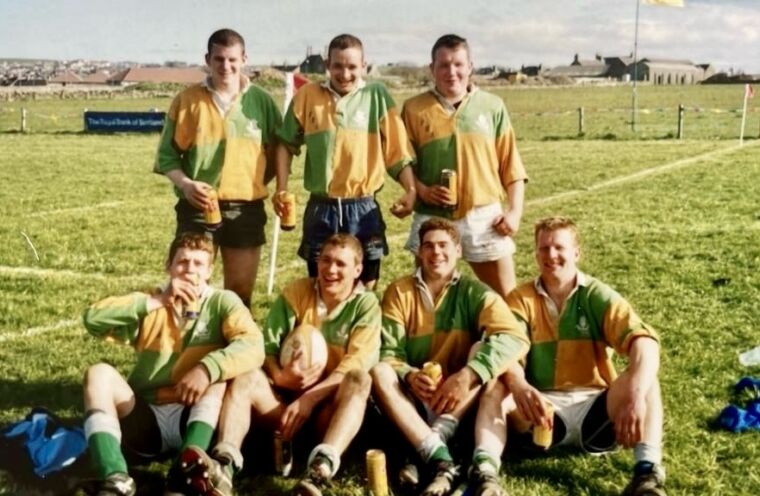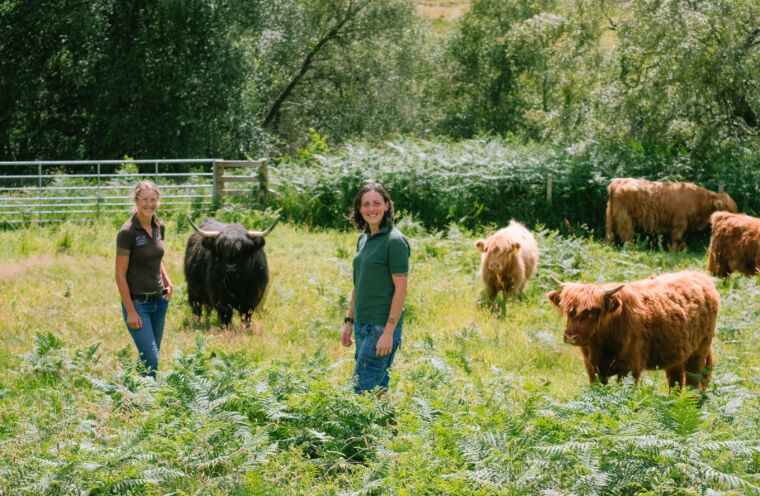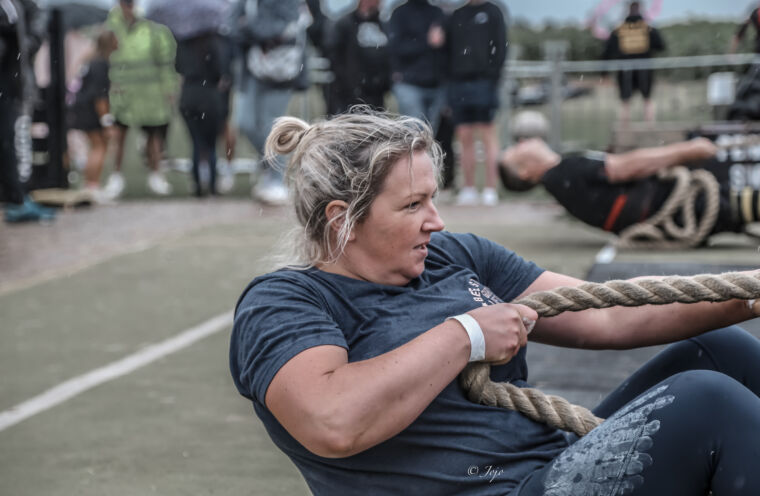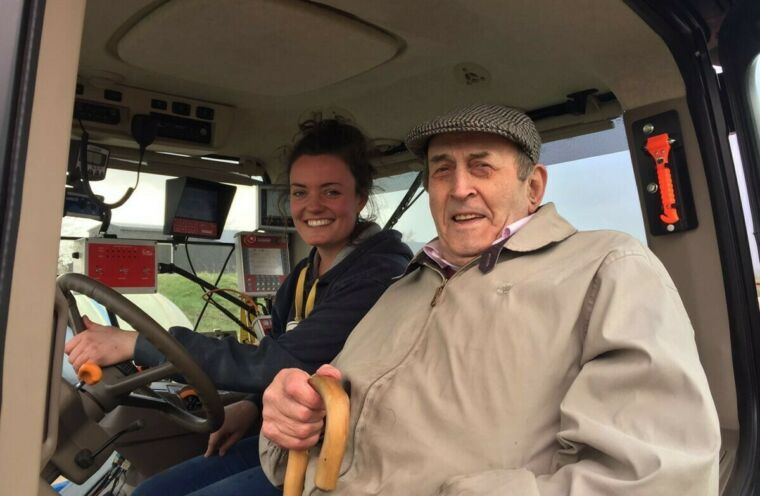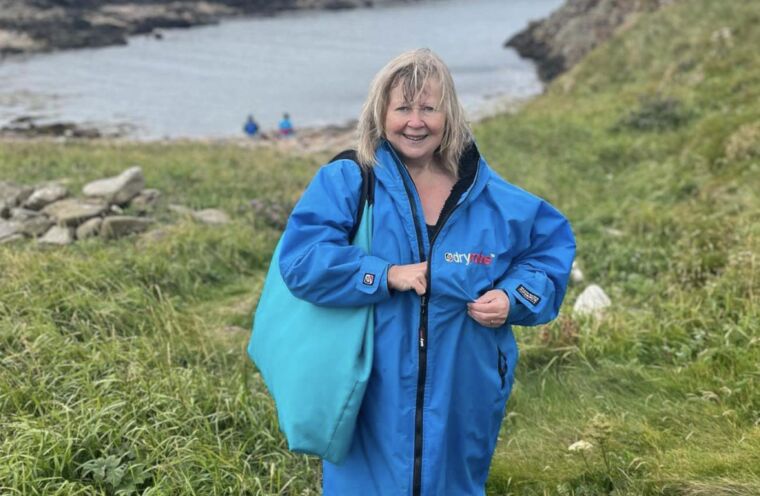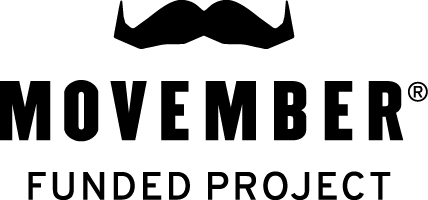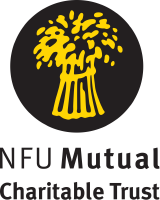In southwest Scotland, at Dourie Farming Company, Rory Christie is part of a third-generation family business that has spent the past 70 years pushing boundaries in livestock farming.
In the Farmstrong Blether Together podcast, last spring, Rory talked about how he manages the ups and downs of farming. With the recent and continued weather, and other pressures, adding further stress to the land, people and livestock, we’ve shared a short insight into our conversation with him.
Alongside his brother Gregor, Rory runs an enterprise that balances tradition with innovation — dairy cows on one side, pigs on the other.
“I look after the dairy cows and the land,” Rory explains. “Gregor is a very able pig keeper. Between us we’ve built on what our grandfather and father started. Today we milk around 1,200 cows and the pigs are managed indoors on a Danish model. In both cases, we’ve tried to learn from the most competitive producers in the world.”
The Christies’ dairy herd is spring block calved — meaning over a thousand cows calve in a tight window each February and March, “a bit like lambing, and very fast and furious,” Rory says. It’s a high-intensity system designed for efficiency and output, reflecting a deliberate strategy to stay competitive in a changing industry.
Building on Family Legacy
Rory’s grandfather Henry, who founded the business in 1954, was a formidable figure. “He was your classic entrepreneur,” Rory recalls. “He specialised in recovering ailing estates, took shares in the profit, and built a business around intensive livestock — pigs in particular, but also dairy. He thought differently, solved problems, and created opportunities.”
That entrepreneurial drive was matched by Rory’s father’s project management skills. Together, they built year after year, creating the business operation that Rory and Gregor now run. But succession has never been simple. “We don’t interfere in each other’s enterprises,” Rory explains. “Everything is done to budget, and we meet every month without fail. That discipline helped us through succession with our father, which wasn’t easy at times, and it keeps us on track now.”
Rory’s daughters are both studying agriculture, something that took him and his wife Rachel by surprise. “They’re bright and capable, exactly what agriculture needs,” he says. “But I wouldn’t want them to come straight back here, if they do decide they want to farm. They need experience of the wider world first. We’ll see where things lead.”
Industry Voice
Alongside the farm, Rory has become a prominent voice in Scottish agriculture. He chairs the Milk Supply Association, representing over 100 dairy farmers who supply a major creamery, the current Chairman of SAOS, and a board member of the South of Scotland Enterprise. He has also played an active role supporting NFU Scotland with dairy policy and is a Scottish Rural Leader.
He admits he once vowed never to follow his father and grandfather into industry committees. “I’d seen how much time they gave up, and I was told never to take my eye off the ball,” Rory recalls. But when financial pressures mounted in the late 1990s and early 2000s, he found himself drawn into cooperative efforts to improve milk contracts and farmer representation. “I got sucked in,” he laughs, “and I’ve been there ever since.”
For Rory, the industry’s biggest challenge is lack of competition. “What our industry needs is more processors in Scotland,” he argues. “If I could change one thing, I’d plonk a big brand-new cooperative-owned dairy factory right in the middle of the country. Farmers have to overcome their fear of cooperation if we’re going to build a better future.”
Living with Stress
Behind the scale of the enterprise and the committees lies the personal toll of responsibility. Rory has learned to recognise the signs of stress in himself. “For me, stress shows up as anger and an upset stomach,” he admits. “I get short-tempered, less tolerant. People telling me I’m wrong when I know I’m right — that really stresses me. Financial pressure too. We’ve had plenty of that.”
Stress has been a constant companion in his career, sharpened by the high stakes of farming. A poor spring, for example in 2024, can mean heavy losses. “We had so many eggs in one basket with calving, and the weather was against us,” Rory recalls. “Being two litres per cow behind target can turn into a quarter of a million pounds lost income — just like that. The weather has a huge effect on us.”
Coping and Perspective
For years, Rory tried to carry the pressure on his own. But experience has taught him healthier ways to cope. “Exercise has been a great help — I used to cycle and run a lot, though I’ve got a knackered knee now. I gave up drinking completely for three years, because alcohol doesn’t help at all. Time away from the farm is essential. It gives me perspective, lets me use the creative side of my brain.”
He’s also learned the value of talking. “My mum always told me whatever happens, you must talk. That was the gift she left me,” he says. “For a long time, I caught myself moaning to my wife Rachel, or my secretary, or agronomist — just offloading. That wasn’t fair on them. So I went and got help instead. I’ve worked with coaches and, more recently, a counsellor. There’s no huge issue I’m dealing with, but sometimes you need someone to help you see things more clearly.”
Rory is frank about the loneliness of leadership. “When you’re the one taking risks, you’re never quite sure if you’re right. That can put you out on your own. But my father always told me that determination mattered most. You have to believe in yourself and push on.”
He’s also aware that farming’s social fabric has frayed. “There’s nowhere to go now — no pubs, no real social hubs. Even getting together with pals can be difficult. That isolation can creep up on you. It’s why friendship matters so much, whether through a rugby club, a discussion group, or just making time to meet people.”
Towards Balance
The lesson, Rory believes, is that farmers must look after their wellbeing with as much care as they look after their stock. “You’ve got to look after your brain as well as your body. Rest and recuperation aren’t luxuries — they’re essential. Without perspective, stress just grows. Getting off the farm, finding time to exercise, using the creative part of your brain — they all help you stay balanced.”
It’s a message he shares openly, because he knows others in the industry face similar struggles. “Leadership is lonely, but farming itself can be lonely too. Reaching out, talking, having a hobby — those things make a difference.”
Looking Forward
Despite the pressures, Rory remains optimistic. He sees farming not just as a job but as his core purpose. “Without farming, there is no purpose for me. It drives everything I do,” he says.
His advice to younger farmers is both straight talking and encouraging: “Don’t think you can be successful without absolute hard work and determination. You’re not entitled to it. Expect to work hard — but look after your body and your brain as well. That way, you’ll be fit for the long haul.”
Rory still defines his ultimate goal in simple terms. “I want to be successful in both family and business. That’s the challenge. It’s easy to do one or the other, but more difficult to do both. But meaningful progress and purpose — that’s what really matters.”
And with that, his story returns to where it began: a farm in southwest Scotland, a family business built across generations, and a farmer who believes that progress, purpose, and determination — balanced with care for wellbeing — are the foundations of a better future.
To listen to the full podcast with Rory, find it on your favourite streaming platform or visit the Farmstrong website here - https://www.farmstrongscotland.org.uk/.
Trio and tested: three tips from Rory on maintaining your wellbeing
- Look after your wellbeing as much as you look after your stock: you’ve got to rest your brain as well as your body
- Getting off the farm, finding time to exercise and doing something to use the creative part of your brain are great ways to find some perspective and stop stress from growing.
- Friendship matters so much. Whether it’s a rugby club, a discussion group or just making time to meet up with people or talk on the phone – discussing things is good for the mind and for business.

